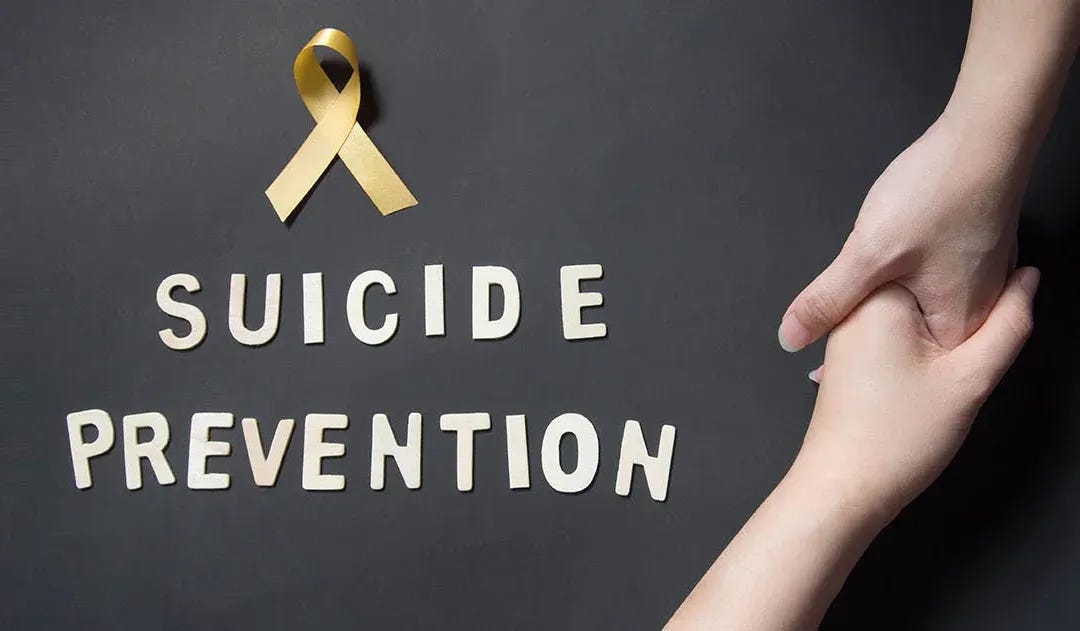Suicide is one of the most painful realities facing our community. Behind every statistic is a person —a friend, a child, a sibling, or a parent — struggling quietly, often unseen. Conversations about mental health and suicide still carry stigma, and unfortunately, there aren’t many resources available for Muslims that cater to our needs from an Islamic perspective. Islam teaches us to care deeply for one another and never to lose hope in Allah’s mercy.
This article is a reminder that no matter how dark things may seem, there is always light through the mercy of God.
Value of Life in Islam
In Islam, life is sacred. The Qur’an says:
“And do not kill yourselves [or one another]. Indeed, Allah is to you ever Merciful.”
(Surah An-Nisa, 4:29)
This Verse reminds us that life itself is precious and that Allah’s mercy is always near.
The Prophet Muhammad (pbuh) also said:
“Whoever kills himself with something in this world will be punished with it on the Day of Resurrection.” (Bukhari & Muslim)
Islam’s message is not just about rules; it’s about rahmah (mercy). When someone is in pain, our duty as Muslims is not to judge but to support, comfort, and help them find healing.
When Hope Feels Impossible
All of us face moments of despair and moments when hope feels distant and our burdens feel too heavy. We are taught that every moment of our lives is a test from Allah, even in joy or sadness.
“O My servants who have transgressed against themselves, do not despair of the mercy of Allah. Indeed, Allah forgives all sins. Indeed, He is the Forgiving, the Merciful.”
(Surah Az-Zumar, 39:53)
One of the most hopeful verses in the Qur’an. It tells us that Allah’s mercy is far greater than any mistake, pain, or hopelessness. Allah is always near:
“And He is with you wherever you are.” (Surah Al-Hadid, 57:4)
Hardships are a way for believers to grow. Allah tells us clearly that struggle is a natural part of life:
“We will surely test you with something of fear and hunger and a loss of wealth and lives and fruits, but give good tidings to the patient- those who, when disaster strikes them, say, ‘Indeed we belong to Allah, and indeed to Him we will return.’”
(Surah Al-Baqarah, 2:155–156)
These verses remind us that patience is not just passive endurance, but it’s active faith. It means trusting Allah’s plan even when we don’t understand it. Every difficulty carries within it an opportunity for spiritual growth, and our soul is purified through trials.
Faith is not about never falling; it’s about always getting back up with Allah’s help.
Role of Community
Muslim community is described as one body:
“If one part of the body suffers, the whole body responds with wakefulness and fever.” (Bukhari & Muslim)
We cannot turn away from each other’s pain. If someone in our community is struggling, it’s not “their problem,” but rather OUR problem.
Check in on your friends — especially the quiet ones.
Listen without judgment.
Offer dua.
Encourage professional help when needed.
Sometimes, just knowing someone cares enough to ask can be the lifeline that keeps a heart beating.
Seeking Help
Our community has a stigma that seeking therapy or medication shows a lack of faith.
“Seek treatment, O servants of Allah, for Allah has not created a disease except that He also created its cure.” (Sunan Ibn Majah)
Depression, anxiety, and suicidal thoughts are illnesses, not weaknesses. Just as we seek the advice of a physician for physical pain, we should seek help for emotional pain. True tawakkul means taking steps toward healing while trusting Allah to guide the outcome.
What the Numbers Tell Us
Suicide is not just a “Western problem”
In the United States:
In 2022, about 49,476 people died by suicide — an average of one death every 11 minutes.
It is the leading cause of death in the country.
Among Muslim Americans:
A study published in JAMA Psychiatry (2021) found that 7.9% of U.S. Muslims reported a lifetime suicide attempt, which is higher than most other religious groups surveyed. Researchers noted factors such as Islamophobia, cultural stigma, refugee trauma, and lack of open discussion as possible contributors.
This is a reminder that many in our community are silently struggling.
How We Can Help
Start the Conversation.
Talk openly about mental health in homes, mosques, schools, and youth groups. The more we talk, the more we break stigma.Be There for Each Other.
Sometimes, listening is more powerful than lecturing.Educate and Train.
Imams, parents, and youth leaders should learn the warning signs of suicide.Connect Faith and Care.
Encourage both du‘a and therapy, both Qur’an and counseling.Create Support Systems.
Build community programs, mentorship groups, and resources within the Muslim community on how to access mental health care.
A Final Message of Hope
If you’re reading this and ever felt like giving up, know that you are not alone. You are loved. And Allah’s mercy is far greater than your pain.
“Indeed, with hardship comes ease.” (Surah Ash-Sharh, 94:6)
Reaching out is not a sign of weakness. It’s one of the bravest, most faithful things you can do.
We need to be the kind of community that listens more than we judge, comforts more than we criticize, and always reminds one another that hope is a form of worship
If You or Someone You Know Is Struggling
988 Suicide & Crisis Lifeline (USA): Call or text 988 (24/7, free, confidential)



